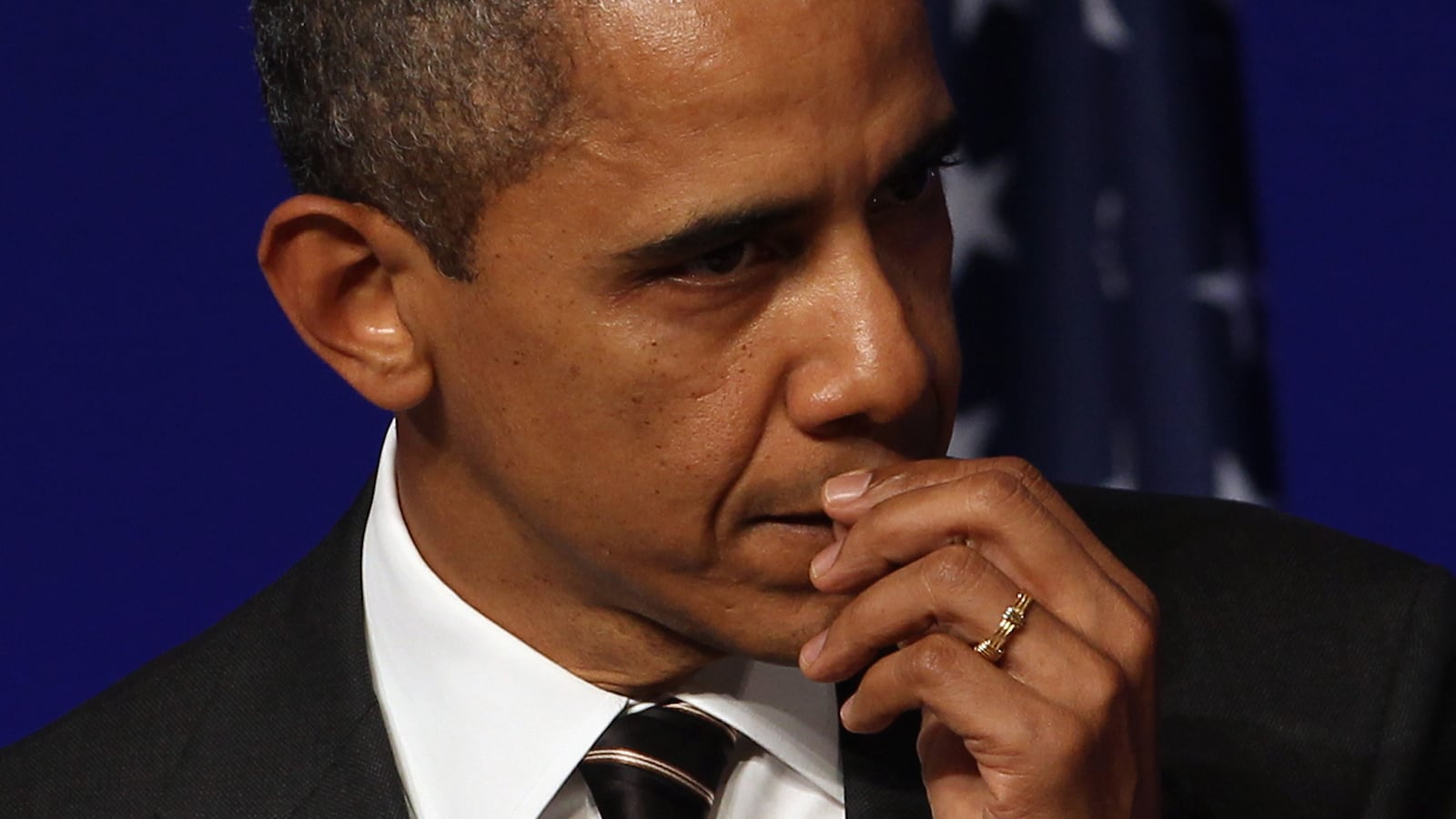Having been elected to the White House with the promise of increased openness and transparency regarding government operations, Barack Obama may end his presidency as among the most secretive in American history.
That, anyway, was the conclusion of a couple of the high-powered panelists Monday night during a debate on freedom of the press vs. national security at the Paley Center for Media.
The result—argued Hina Shamsi of the American Civil Liberties Union and Barton Gellman of The Washington Post—is stifled freedom of the press, less official accountability and a potential increase in government-sanctioned wrongdoing behind a veil of secrecy that supposedly protects the homeland but actually shields federal officials from legitimate public inquiry.
“The Obama administration—after first starting out by making promises of greater transparency, lessening over-classification, providing greater protections for whistleblowers—has in fact turned its back, and done virtually the same thing as the Bush administration,” said Shamsi, who directs the ACLU’s National Security Project.
The Obama Justice Department’s “accelerated prosecutions of leakers,” especially revelations that expose crimes or embarrass government officials, “does have a chilling effect domestically” and “significant negative consequences” on democracy, she added.
The Post’s Gellman, who won his third Pulitzer Prize this year for revelations concerning National Security Agency whistleblower Edward Snowden, told me: “Every president I’ve covered from the first George Bush onward has been hostile to leaks, especially in the national security context. But they have a lot more tools now, a lot more information, a lot more digital exhaust that we all have. So they can find journalists more easily, and they can find leakers.”
Statistics tell a disturbing story. “Here are the numbers,” Gellman said. “Under President Nixon, one source was prosecuted. Under George W. Bush, it was two. Under Obama, it’s six. In absolute numbers they’re not very large, but in terms of sending a message they’re considerable.”
Just as alarming, Gellman added, was Director of National Intelligence James Clapper’s decree that nobody could speak to a journalist about even unclassified subjects unless they first received permission from a supervisor and the conversation was officially logged.
“If you want a greater deterrent…” Gellman mused. In the recent past, reporters had easy access to foreign policy and national security experts in the government who knew how to speak usefully about matters of public interest without disclosing official secrets. But no longer.
“It’s a problem,” Gellman said.
The back-and-forth on the panel—moderated by Yahoo News chief investigative correspondent Michael Isikoff—had former NSA general counsel and CIA adviser Robert Dietz, along with Hudson Institute senior fellow Gabriel Schoenfeld, the author of the book Necessary Secrets, defending the culture of clandestine activity and the NSA’s collection of so-called “metadata” on private communications as essential to foiling terrorist plots in the perilous post-9/11 world.
The discussion, inevitably, touched on the motives of Snowden, who downloaded tens of thousands of classified documents, shared them with Gellman and his co-Pulitzer winner Glenn Greenwald, then of The Guardian, and then fled to Moscow in order to evade U.S. prosecution for alleged violation of espionage laws.
“One man’s whistleblower is a another man’s malcontented employee,” said Dietz, who these days is a professor of public policy at Virginia’s George Mason University. “I believe he is a person who is seeking fame. There is a huge sanctimony there.”
Schoenfeld, meanwhile, suggested that if Snowden was really sincere about concerns that the NSA was violating the Constitution, he could have “taken his revelations to the Supreme Court. He’s a man who fled to Moscow, lecturing America on surveillance from a surveillance state.”
Dietz—who at one point seemed to defend the World War II internment of Japanese Americans as a “lawful” exercise of government power—compared secret-revealing journalists to gun-wielding felons.
Responding to a video clip of the late Washington Post Managing Editor Howard Simons suggesting that it’s the government’s job to keep secrets and the reporter’s job to ferret them out, Dietz declared: “It’s the bank’s job to keep your money. It is the burglar’s job to break it out.”
“Bank robbers?” Gellman reacted incredulously.






